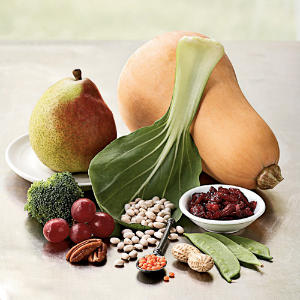Why Fiber is Important for your Health
You shouldn’t underestimate the health benefits from Fiber. Check out why Fiber is an important part of your health, how different types of fiber affects your body, the recommended amount, and which foods are high in fiber.
Health Benefits of Fiber
• Helps lower the risk of heart diseases and some cancers
• Fiber aides in digestion
•Fiber encourages hydration
• Increases Satiety
•Helps lower overall cholesterol levels
Different Types of Fiber
Soluble Fiber – This type of fiber binds with fatty acids in your stomach and as it travels down the GI tract. The soluble fiber prolongs digestion, slows the absorption of sugars and fats, and helps regulate blood sugar. Studies also show that soluble fiber can help lower LDL cholesterol (harmful type of cholesterol) and reduces the overall cholesterol count.
Prebiotic Soluble Fiber – This type of fiber feeds the protective bacteria in your colon and stimulates immune-cell production, which promotes a healthy immune system.
Insoluble Fiber – This type of fiber adsorbs a lot of water as it travels down the GI tract, which prevents constipation and increases the frequency of stools. Insoluble fiber helps remove toxins from your colon, balances intestine acidity, and helps move waste through the intestines and the bowel.
Dietary Fiber – This type of fiber has been shown to help ease the symptoms of certain digestive disorders.
Recommended Intake of Fiber
The average adult needs anywhere from 25 grams to 40 grams of fiber on a daily basis. Most adults get less than half of the recommended daily amount, which can cause a lot of negative health effects.
Foods High in Fiber
Avocado – 11 grams for one (medium)
Kidney Beans – 8.2 grams per serving
Wheat bran – 8 grams per serving
Pear – 5.5 grams for one (medium)
Lentils – 5 grams per serving
Prunes – 4.5 grams per serving
Split Peas – 4.4 grams per serving
Raspberries – 4 grams per serving
Apples -3.1 grams for one (medium)
Oranges – 3.1 grams for one (medium)
Butternut Squash – 3 grams per serving
Flax seeds – 2.7 grams per tablespoon
Feel free to follow us, however you like: Google+, Facebook, Twitter, Pinterest
Image Credit: thenutritionpost.com

